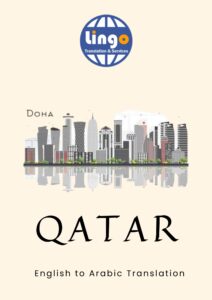Government Agencies – Find the Best Language Service Provider
Understanding and ensuring effective communication is essential for successfully delivering services and implementing policies in any organization. For government agencies, precise, accurate, and effective communication becomes even more critical. Professional language services can enhance this communication, improving policy delivery, engaging citizenry, ensuring the inclusivity of multilingual communities, and creating a global image of the government.
Professional language services include many offerings, such as translation, localization, interpretation, transcription, and multilingual desktop publishing. They enable government agencies to bridge communication gaps, relay information clearly to diverse linguistic groups, foster a greater understanding of multilingual communities, and enhance diplomacy and international relations.
However, with many Language Service Providers (LSPs) in the market, finding the best one that meets a government agency’s particular needs can take time and effort. This article explores some valuable guidelines to assist government agencies in choosing the best language service provider.
1. Assess your Needs:
The first step in finding the best language service provider involves thoroughly assessing the agency’s language service needs. Are the required services textual, involving translation and transcription, or are there requirements for oral-language interpretation? Are these services needed for different languages or geared explicitly for a minority linguistic community? Additionally, understanding the subject matter of the content to be managed, the volume, and required turnaround times is critical. Assessing these factors will help the agency identify the potential language service providers that can effectively meet these demands.
2. Expertise and Professionalism:
Once the agency’s language service needs are understood, the next step is to evaluate potential providers’ ability to deliver these services. Consider the providers’ experience, the number and diversity of languages they handle, and their reputation. They should have an excellent track record for delivering high-quality, accurate services within stipulated deadlines.
The language service provider should also demonstrate professional ethics and integrity. They should adhere to international translation standards such as ISO 17100 and ISO 18587, ensuring that the delivered service is not just a direct translation but carries the accurate essence and nuance of the original content.
3. Quality Assurance:
Exceptional quality is undoubtedly a key consideration in choosing a language service provider. To evaluate this, scrutinize the provider’s quality assurance systems and processes. Do they involve rigorous translation and interpretation checks and revisions to eliminate errors? Is there a process for proofreading, reviewing, and finalizing the translated or interpreted content? High-quality services also involve using expert native-language professionals to ensure cultural appropriateness and accuracy.
4. Security and Confidentiality:
Government agencies often handle susceptible information. Therefore, the chosen language service provider must follow stringent security and confidentiality protocols. They should comply with recognized data security standards, have secure and encrypted communication systems, and ensure the confidentiality of translated or interpreted content. Agreement on Non-Disclosure Agreements (NDAs) may be essential in working together.
5. Technological Capabilities:
With the rise of digital transformation, having a language service provider that harnesses the power of technology is beneficial. From Computer Assisted Translation (CAT) tools to Artificial Intelligence (AI) and Machine Learning (ML), technological advancements increase efficiency and accuracy and speed up translation and interpretation processes. Using this software, augmenting the work of human linguists can result in cost-effective and timely delivery of language services.
6. Customer Support:
Last but not least, consider the customer support services of the language service providers. Outstanding customer service includes timely responses, transparency about service processes, systematic project management, and flexibility in service delivery tailored to the agency’s needs. This ensures a smooth workflow, meeting deadlines, and ease of communication between the agency and the language service provider.
Conclusion
In conclusion, finding the best language service provider is challenging for government agencies. However, following these guidelines can ensure the selection of an effective, reputable, and capable provider that meets the agency’s specific needs. This choice will ultimately offer immense benefits, such as bridging communication gaps, engaging diverse communities, promoting inclusivity, and enhancing international relations. Therefore, a rigorous and thoughtful approach should be taken to ensure the chosen provider lives up to the professional standards expected by government agencies.





